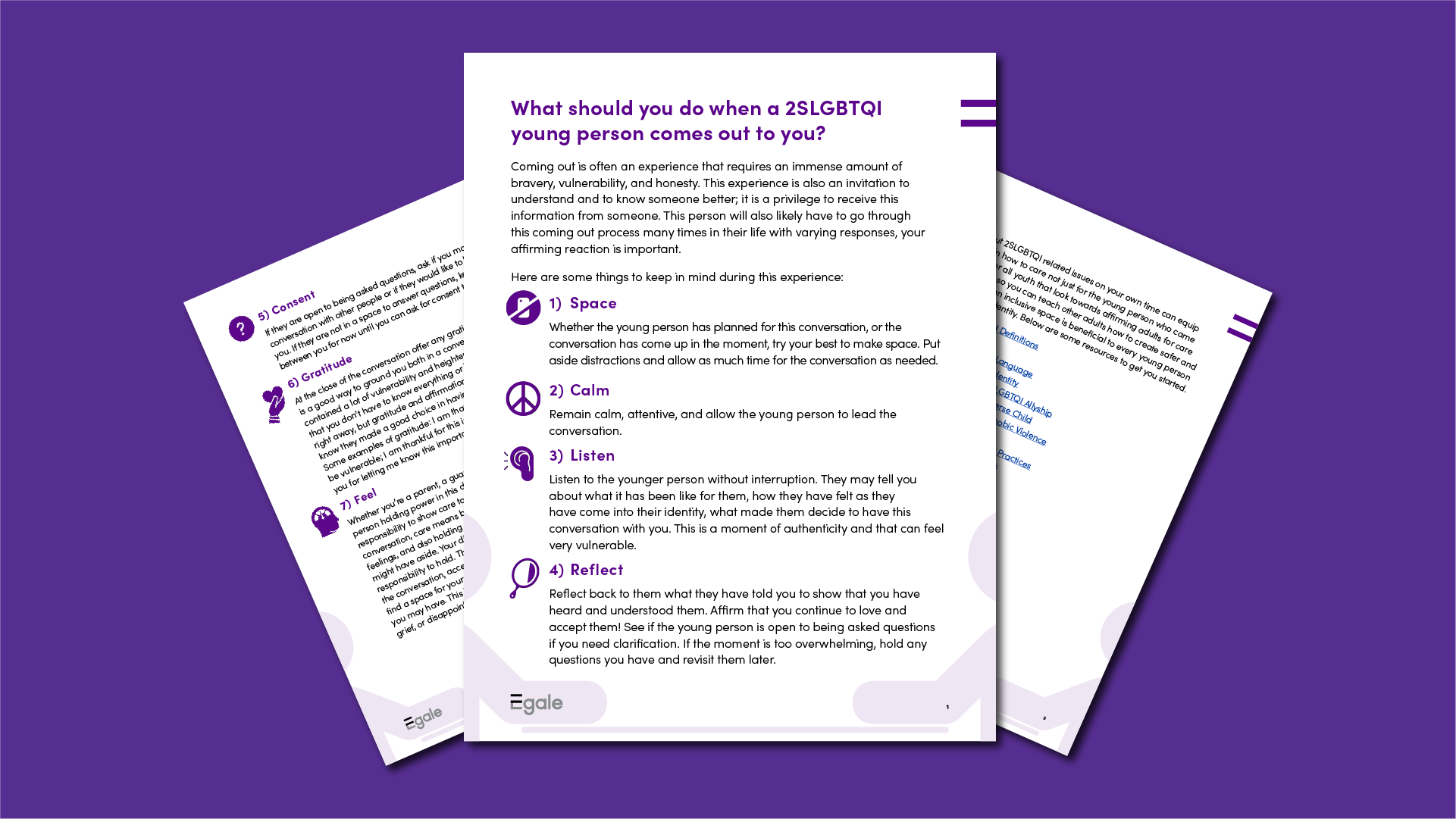Coming out is often an experience that requires an immense amount of bravery, vulnerability, and honesty. This experience is also an invitation to understand and to know someone better; it is a privilege to receive this information from someone. This person will also likely have to go through this coming out process many times in their life with varying responses, your affirming reaction is important.
Use this list of suggestions on how to react in a way that will support your 2SLGBTQI child who just came out to you.
